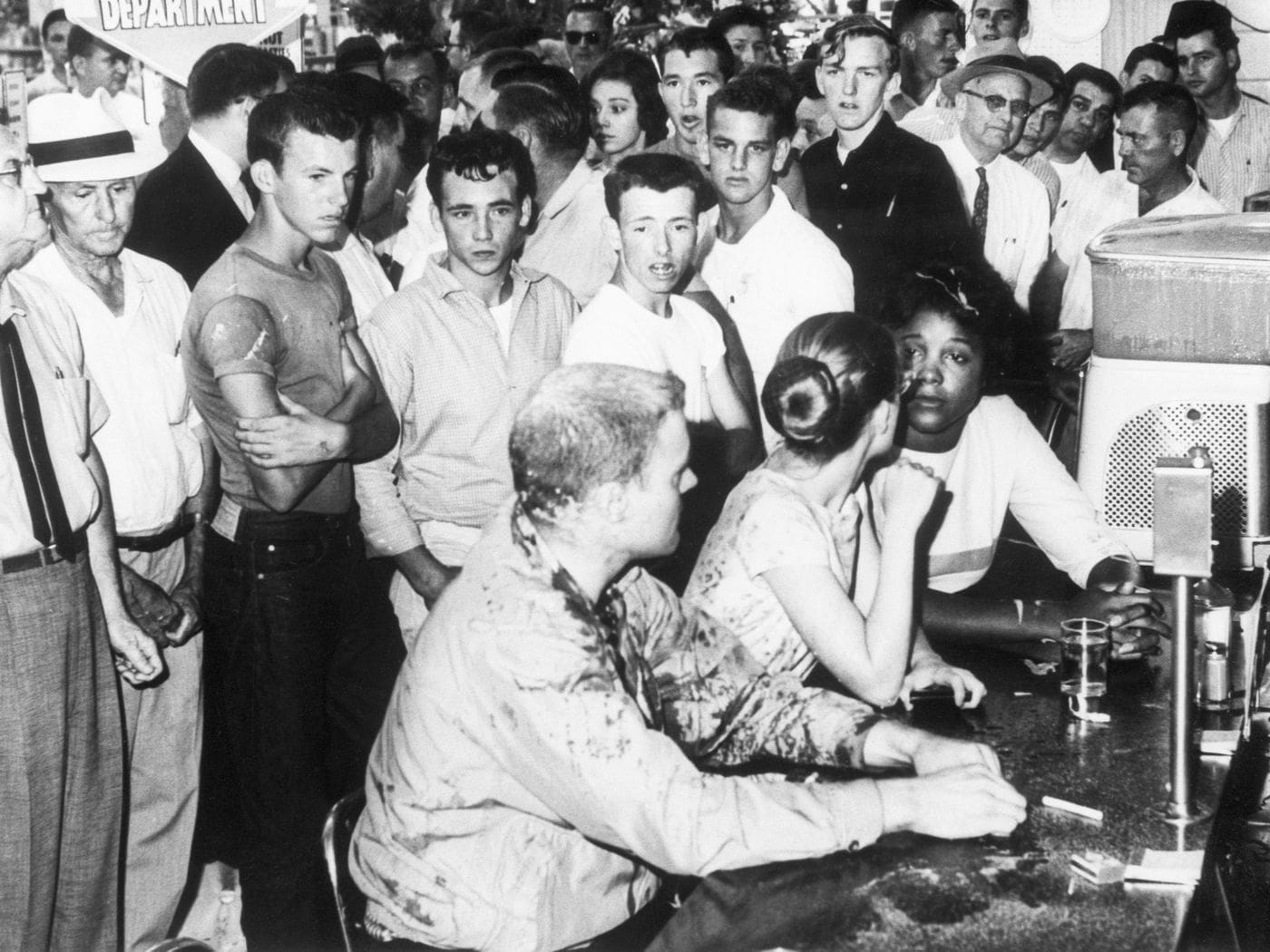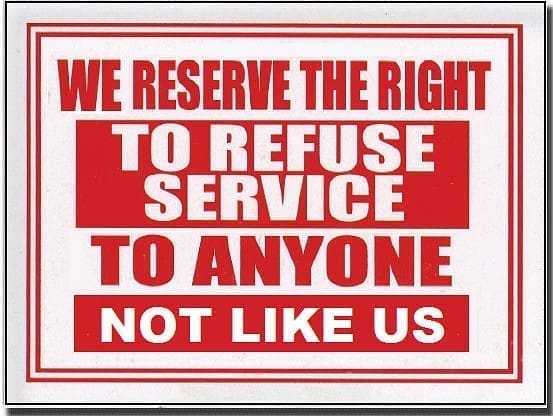Imagine this: You walk into a bakery, eagerly anticipating the perfect cake for your wedding. The baker listens intently but then declines your request, citing religious beliefs against same-sex marriage. Suddenly, your cake dreams crumble faster than a stale cookie.
Welcome to the 21st century, where the age-old question of “to serve or not to serve” has taken on a new flavor. In today’s diverse society, should businesses have the right to refuse service based on their owners’ religious beliefs? Let’s dive into this debate and see if we can serve up a satisfying solution.
The law that sparked the debate

It all began in 1993 when the federal government passed the Religious Freedom Restoration Act (RFRA) to protect Native Americans using peyote in religious ceremonies. However, in 1997, the U.S. Supreme Court ruled that RFRA applied only to federal laws, not state laws. Since then, 22 states have created their own “religious freedom” laws.
As Martin Luther King Jr. aptly said, “Injustice anywhere is a threat to justice everywhere.” This quote resonates deeply in this context, where the refusal to serve based on religious beliefs could set a dangerous precedent that undermines justice across society. The concern is that allowing such refusals could normalize discrimination, making it acceptable in other spheres.
Supporters argue these laws protect religious businesses from serving customers whose lifestyles contradict their beliefs. Opponents claim these laws have become a recipe for discrimination, particularly against LGBTQ+ individuals. So, should a business owner have the right to deny service, or is that too much religious seasoning in the mix?
When beliefs and business collide

In 2018, the U.S. Supreme Court ruled in favor of a Colorado baker who refused to make a wedding cake for a same-sex couple, citing religious beliefs. The decision was narrow and focused more on procedural issues than setting a broad precedent. But it left many asking: Where do we draw the line between religious freedom and discrimination?
Here’s where the data comes in. A 2020 Public Religion Research Institute (PRRI) survey found that 61% of Americans opposed allowing businesses to refuse services to LGBTQ+ individuals based on religious beliefs, with only 33% in favor. This divide highlights how some view these refusals as religious liberty, while the majority see them as discriminatory.
Historical echoes and modern parallels

This isn’t the first time America has grappled with such issues. During the Civil Rights era, some businesses refused service to African Americans, citing “religious beliefs.” Society eventually rejected this, recognizing that discrimination, even cloaked in religious rhetoric, has no place in a just nation.
Today, we see history repeating itself, now aimed at different groups. The core issue remains the same: Should personal religious beliefs dictate the rights of others in a public marketplace?
Consider the 2015 case in Ireland where a bakery refused to make a cake with the slogan “Support Gay Marriage,” arguing it conflicted with the owners’ Christian beliefs. The UK Supreme Court ruled in favor of the bakery, but the case sparked debate, much like in the U.S.
Where do we draw the line?
Should a florist refuse to provide flowers for a same-sex wedding? Should a photographer decline to capture a ceremony based on religious objections? Imagine a world where businesses could pick and choose customers like produce at a grocery store. How far could this go? Are we ready to live in a society where service depends on whether the business owner deems you worthy?
According to the PRRI survey, 72% of Democrats and 67% of Independents oppose allowing businesses to refuse services based on religious beliefs, compared to only 40% of Republicans. This shows a clear political divide, but the trend is clear: A growing majority believes public businesses should serve all customers, regardless of the owner’s personal beliefs.
Protecting rights or endorsing discrimination?
As consumers and citizens, we have the power to influence the marketplace and society. What kind of world do you want to live in? One where businesses serve the community regardless of personal differences, or one where service comes with a side of judgment and intolerance?
Barbara Gittings, a pioneer in the LGBTQ rights movement, once said, “Equality means more than passing laws. The struggle is really won in the hearts and minds of the community, where it really counts.” This quote encapsulates the essence of the debate—while laws are crucial, true equality is achieved when communities embrace diversity and reject discrimination at a fundamental level.
It’s time to stand up for a society where religious freedom coexists with equality—a society where businesses serve with integrity, not with a bias-shaped cookie cutter. Support laws that protect both freedom and fairness. Choose to patronize businesses that embrace diversity and speak out against those that use religious beliefs as a flimsy excuse for prejudice.
The next time you walk into a store, bakery, or doctor’s office, ask yourself: Will you be served with a smile or scrutinized through a moral microscope? And more importantly, what can you do to ensure that we all get a slice of the American pie—no matter who we are or what we believe?

Final thoughts
At the end of the day, this debate isn’t just about cake, flowers, or religious beliefs. It’s about the ingredients we’re mixing into the fabric of our society. Are we creating a recipe for understanding and mutual respect or adding too much intolerance to the mix? The choice, as always, is ours—and it’s time we finally get this dish right and hold on to the recipe.









